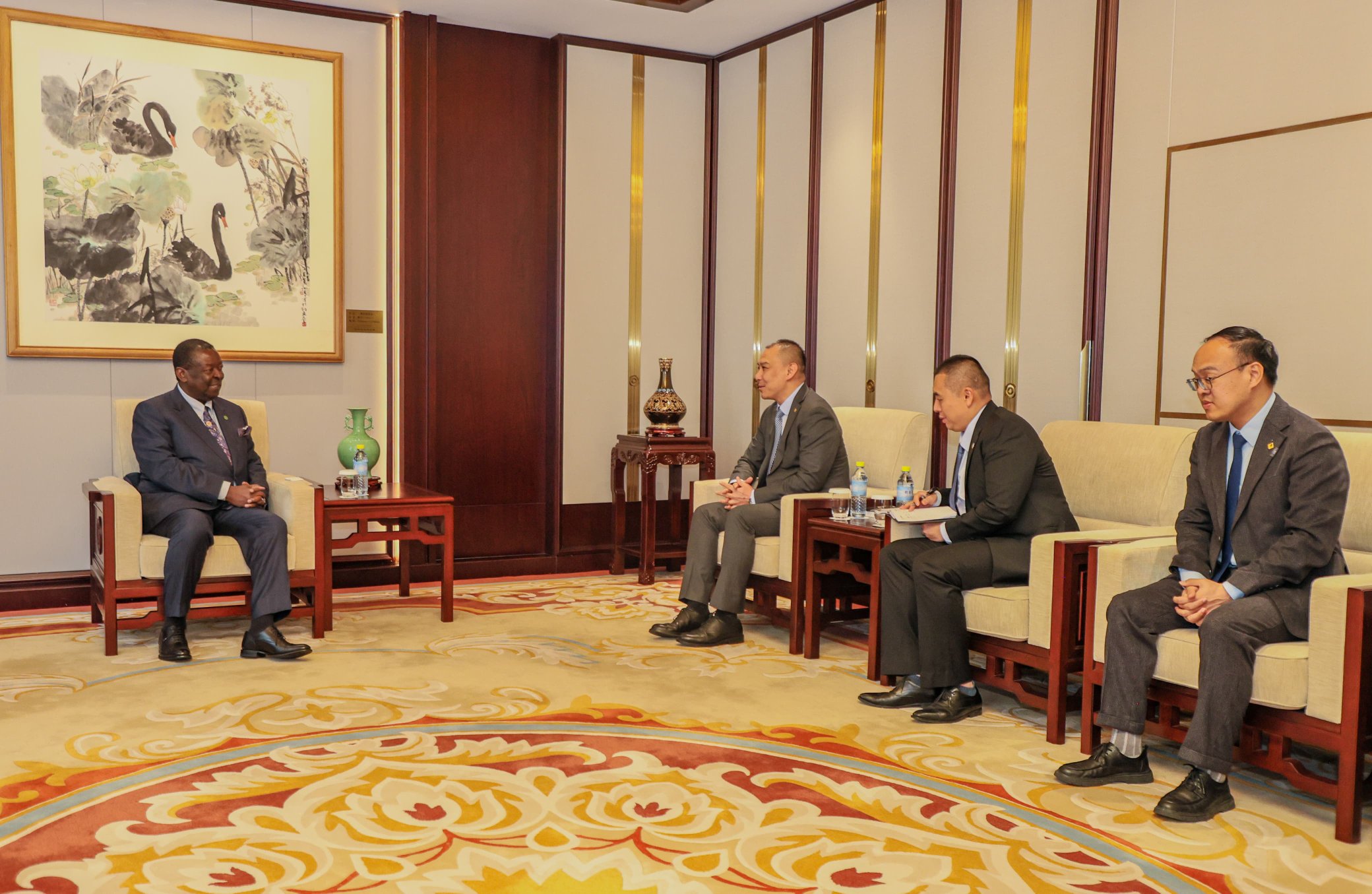Kenya turns to Beijing for JKIA expansion after Adani fallout

Prime Cabinet Secretary and Foreign Affairs Minister Musalia Mudavadi met with senior executives from the Beijing Urban Construction Group (BUCG), signalling a shift in Kenya's search for credible partners.
With its flagship airport expansion plan in limbo, Kenya is pivoting toward Beijing in a bid to revive the long-stalled overhaul of Nairobi's dilapidated Jomo Kenyatta International Airport (JKIA).
The move comes months after President William Ruto cancelled a controversial deal involving India's Adani Group, citing transparency concerns and international red flags.
More To Read
- China deploys 48th Naval Escort Fleet to Gulf of Aden for anti-piracy mission
- Chinese companies are changing the way they operate in Africa: Here’s how
- New report shows China’s growing reach across 101 countries, Africa key to strategy
- 'Yiwu Selection' store debuts in Nairobi, bringing Chinese brands closer to Kenyan consumers
- Adani whistleblower Nelson Amenya sounds alarm on Kipini Conservancy sale
- China offers zero-tariff measures to 53 African countries, excluding Eswatini
On Tuesday, Prime Cabinet Secretary and Foreign Affairs Cabinet Secretary Musalia Mudavadi met with senior executives from the Beijing Urban Construction Group (BUCG), signalling a shift in Kenya's search for credible partners.
The meeting comes ahead of President Ruto's state visit to China, during which infrastructure and investment will top the agenda.
"Kenya needs a modernised Jomo Kenyatta International Airport to strengthen its position as a leading hub for Eastern Africa and the continent at large," Mudavadi said in a statement posted on X.
Mudavadi met with BUCG International President Raymond Luo, Marketing GM Harold Huang, and Vice President for Southeast Africa Wei Zhang, and described their discussion as "insightful."
"They shared with me their 42 years of experience building over 30 airport terminals, runways, and specialised aviation facilities worldwide," he noted, encouraging BUCG to submit an expression of interest ahead of Kenya's formal contractor invitation.
The Chinese firm is no stranger to the region.
BUCG is currently upgrading regional airports in Tanzania and the third terminal at Zanzibar's Abeid Amani Karume International Airport, and is credited with constructing major infrastructure projects globally, including the iconic 600,000 sqm concourse of Beijing Daxing International Airport, as well as the third runway at Hong Kong International Airport and Velana International Airport in the Maldives.
Strategic opening for China
Kenya's turn to China comes on the heels of the politically toxic collapse of its planned public-private partnership with the Adani Group, an Indian multinational with interests spanning energy, logistics, and infrastructure.
In November 2024, President Ruto formally cancelled the deal during his State of the Nation address before Parliament.
"Accordingly, I now direct, in furtherance of principles enshrined in Article 10 of the constitution on transparency and accountability... that the procuring agencies in the Ministry of Transport and the Ministry of Energy and Petroleum immediately cancel the ongoing procurement process for the JKIA expansion public-private partnership," Ruto said.
The move followed mounting pressure from civil society, investigative agencies, and diplomatic partners who flagged Adani's global controversies, including accusations of stock manipulation, opaque offshore dealings, and crony capitalism.
The group, led by Indian billionaire Gautam Adani, has faced scrutiny in India and abroad, particularly after a scathing report by U.S.-based short-seller Hindenburg Research in early 2023 accused the conglomerate of "the largest con in corporate history."
Kenya's scrapping of the deal also extended to an energy agreement between Adani and the Kenya Electricity Transmission Company (KETRACO), highlighting the government's desire to reset the terms of engagement with new partners.
"The respective ministries should immediately begin onboarding new partners for the Public-Private Partnership initiatives," Ruto directed.
Strategic choices
JKIA remains East Africa's primary aviation hub, handling more than 7 million passengers annually and serving as a gateway to the region.
The airport's ageing infrastructure, however, is under growing pressure, particularly as Ethiopia and Rwanda ramp up investments in their own international terminals, threatening to erode Nairobi's edge.
With the West hesitant to finance large-scale transport projects and Indian partnerships under review, China's re-entry into Kenya's airport sector is both economically and geopolitically significant.
Beijing's role in East Africa's development is unlikely to fade, especially as Kenya balances its Major Non-NATO Ally (MNNA) designation from the U.S. with an increasingly pragmatic shift eastward.
Top Stories Today











































